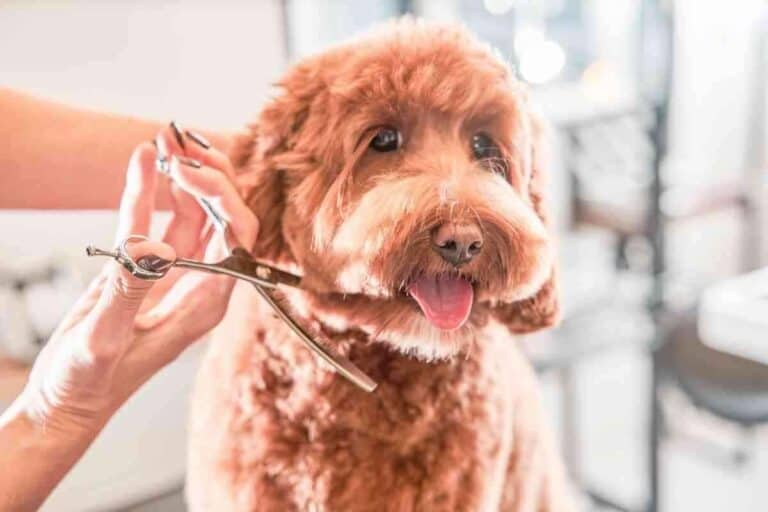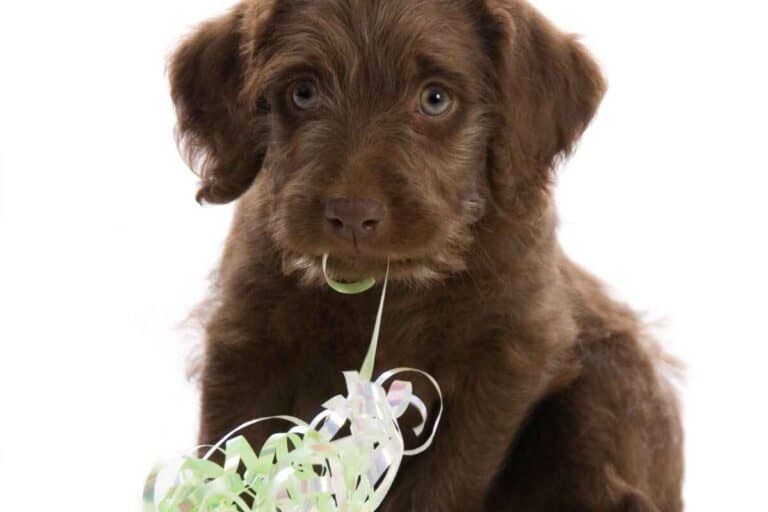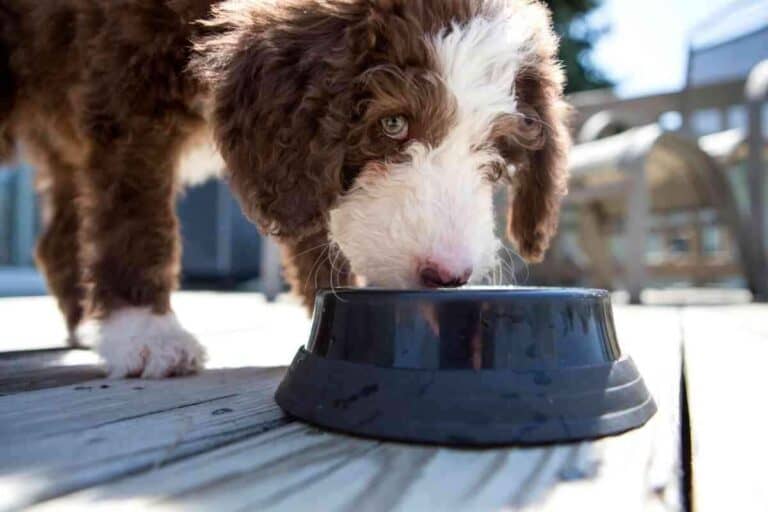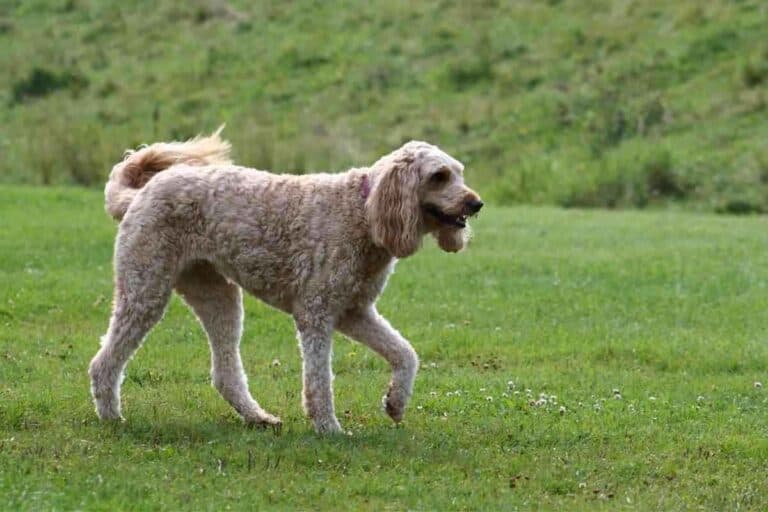When Should a Labradoodle be Spayed?
If you have a Labradoodle puppy, you might be wondering at what age you should have your female Labradoodle spayed.
When you first get a puppy, you will spend the first few weeks getting them injections, vaccinations, overall health checks to make sure the puppy you have is healthy and thriving.
Another important decision you need to make is to spay them or not.
When Should a Labradoodle be Spayed?
Vets generally recommend you spay your Labradoodle between 4 and 9 months of age. The same depends on neutering male dogs. Doing the operation during the proper timeframe can have positive effects on their behavior as well as prevent unwanted litters.
You might still have questions when it comes to spaying your Labradoodle.
This article will strive to answer all your most important questions and ensure that you have all the information you need to make an informed decision.
What Does It Mean to Spay My Labradoodle?
Spaying is the procedure for female dogs. It’s when the uterus and the ovaries are removed to prevent your dog from being able to get pregnant.
The procedure will involve cutting a small incision into the abdomen.
The incision usually heals very quickly and doesn’t leave a scar.
Your vet will be able to recommend the best time to spay your Labradoodle.
Always listen to their advice as they will be able to observe your dog’s health and risk factors before making a decision.
Some vets might recommend you spay your dog before they go into their first heat, which could be 5 months or younger.
Other vets will say this can increase the risk of mammary tumors and they suggest your dog have her first heat before going in for the spay operation.
Always ask your vet what they recommend and follow their guidelines.
Why Should I Have My Labradoodle Spayed?
There are many physical and health reasons to spay your Labradoodle at the right time.
It will improve your quality of life for one.
If a female has not been spayed, she will have heat cycles where you will have to deal with mood changes and bleeding around the house.
When a dog is in heat, she can often get clingy and aggressive which are both unwanted behaviors you don’t want in your home.
Some research also suggests that dogs that have not been spayed are more likely to try and run out of the house during heat looking for male dogs.
This can make your life much harder because you will need to be more careful when you leave the house or when you leave doors open.
Labradoodles that are spayed also greatly benefit health-wise.
Spaying is proven to reduce the risk of breast cancer and uterine infections.
Preventing these major life issues and health problems can drastically increase your puppy’s quality of life as they grow and develop.
Spaying can also prevent unwanted puppies.
You don’t want your dog to get lose one day only to come back and find out that she got pregnant.
This can make your life stressful in many ways because you are now in charge of caring for a pregnant dog which requires more attention and more doctor’s visits.
You will also have to take care of the puppies and find them happy and healthy homes.
This can take a lot of time and effort, especially if you are working or have children you need to take care of.
If your Labradoodle is spayed, you don’t have to worry about her getting pregnant in the case she gets out of the house or if you have male visitors that come around the house.
Is Spaying Safe?
If you get the procedure done at a safe and reputable vet clinic or vet hospital, the procedure is perfectly safe.
Make sure to always get the procedure done with a vet you trust so you know your dog is in good hands.
The surgery doesn’t carry any other risks compared to other surgeries and your puppy will be put under general anesthetic, so they won’t have any pain.
Does Spaying My Dog Change Her Personality?
Despite rumors you have heard from friends or seen on the web, there is no medical or scientific evidence that says spaying a dog will change her personality.
It also doesn’t make them more fat or lazy.
As long as you continue to play with them and take them for regular walks, they will not gain an abnormal amount of weight just because they are spayed.
Spaying your dog might make her calmer as she advances in age as she is not going through heat or trying to reproduce.
Usually, though, their temperament stays the same and they are still the happy and amazing dog you had from the very beginning.
What are Some Tips I Should Follow After the Spay Procedure?
Even though spaying is a simple and straightforward procedure, you will still want to follow some care tips to make sure your Labradoodle stays healthy and doesn’t have any issues.
Remember that your pet is not aware of what happened, all they know is they feel funny and different. Allow them to rest and take it easy.
Don’t leave her alone for too long and make sure she knows you are there for her if she needs you.
Make sure you give them as much water as they want but don’t overfeed them.
Most vets recommend you give them only half the amount of food you normally do.
She might not want to eat for a few days or she may barely eat and that’s perfectly normal.
Try to discourage jumping, running, and rough play. Don’t bring out the toys and play with them as they might get too excited and rip open their incision or stitches.
Make sure their incision site stays dry and clean.
Don’t take off the glue or the stitches on your own, allow them to fall off or dissolve on their own per the vet’s recommendations.
They also shouldn’t have any baths or swim when their incision is still healing.
Staying dry also means not allowing them to lick the wound. This is the main reason why they wear cones.
This allows them to not be able to lick the wound and potentially infect it.
You don’t always have to use the cone the vet gives you if they find it uncomfortable or hard to wear.
You can also look online for surgical recovery units, inflatable collars, and soft cones. Make sure you are always checking the incision site daily.
Some leakage and redness are normal, but they should heal and go away on their own.
If you notice it not going away or getting worse, call the vet right away.
You should also call the vet if you notice any weird smells, pus, or large amounts of blood coming from the wound.
More important than anything else, just make sure you are comforting them. Consider taking a few days off work to just be with them and ensure they are not lonely or scared.
What If I Miss the Window for Spaying My Labradoodle?
If you adopt an older Labradoodle or decide to wait for spaying, you might be wondering what to do since the optimal window for spaying has passed.
The best thing to do is to ask your vet for advice.
Some dogs can still be spayed despite the best time for the operation passing.
In other cases, the vet may recommend you do not spay the dog in the case they are very old or have other health issues.
Spaying at the wrong time can cause development complications.
Your vet may still be willing to do the procedure, but they will need to warn you about any potential problems from doing the procedure too late.
If your dog is already in heat, you will need to wait until it’s over for the surgery.
More blood is going into the area during heat and can make the procedure riskier and cause more complications.
You also can’t get the procedure done if your dog is already pregnant.
If your dog got pregnant on accident, you will need to wait until after she has her litter.
Some vets will also recommend you wait for many months afterward.
Can I Breed My Labradoodle?
One of the many reasons why people don’t get their Labradoodle spayed is because they want to breed the dog.
You shouldn’t take breeding likely though.
The decision is serious and you will need to follow proper guidelines depending on kennel and association rules.
You might want to consult fellow breeders or ask expert advice before choosing to breed.
Final Thoughts
Spaying your Labradoodle has many health benefits as long as it’s done within the right timeframe.
Always consult your vet before making the final decision. You also need to take proper care of your dog after the operation.






